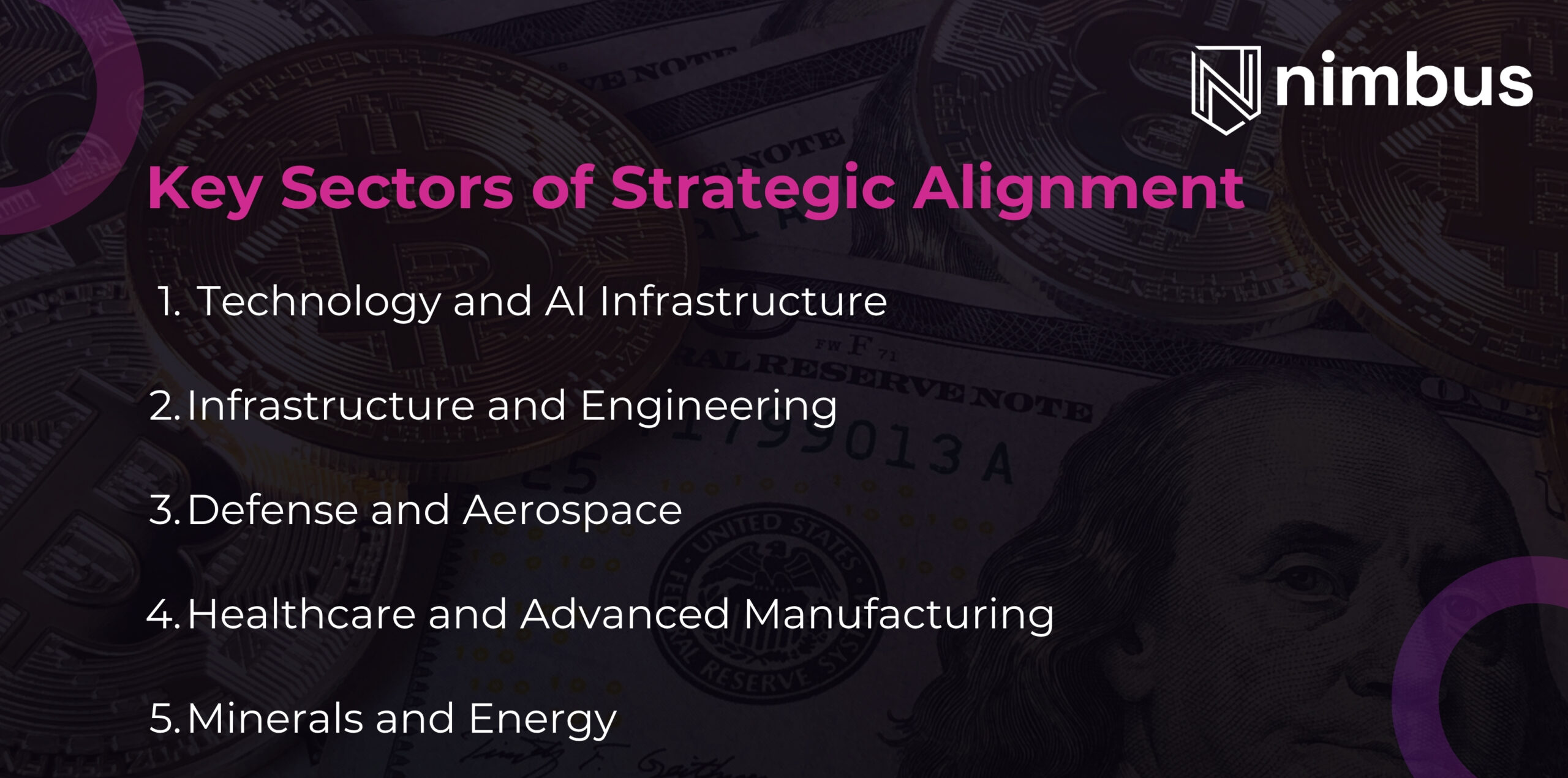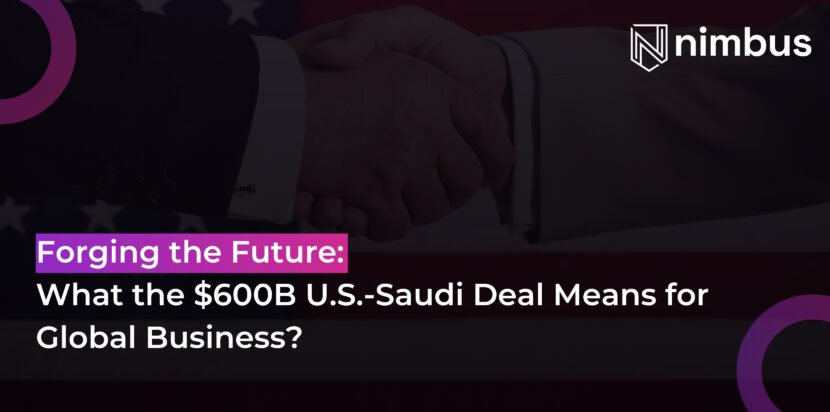Donald Trump’s visit to Saudi Arabia has been a much-awaited event for the whole world. In a landmark development that marks a new era of bilateral cooperation, Saudi Arabia and the United States have announced a strategic investment package totaling over $600 billion, ushering in what can be seen as a “golden era” of economic partnership.
For global businesses, this announcement reflects a profound alignment of interests between two of the world’s most influential economies. It opens a host of new opportunities, particularly for those looking to establish a footprint in the Kingdom of Saudi Arabia.
The vision behind this partnership, the sectors it prioritizes, and the agreements signed offer key insights into where the Saudi economy is headed and how international businesses can align with this momentum.
– A Partnership Decades in the Making
This announcement coincides with the 80th anniversary of the historic meeting between President Franklin D. Roosevelt and King Abdulaziz Al Saud aboard the USS Quincy in 1945, a symbolic reminder that the roots of U.S.-Saudi cooperation run deep.
But today’s agreements go far beyond symbolic diplomacy. They signal an evolved and mature relationship, grounded in economic diversification, technological advancement, and shared security concerns.
The U.S. remains one of Saudi Arabia’s largest trading partners, with $25.9 billion in goods traded in 2024 alone. Saudi direct investment in the United States reached $9.5 billion in 2023, and the new agreements significantly amplify that scale.
The economic partnership is becoming multidimensional, branching into sectors that were previously underexplored or tightly held by national entities like AI, critical minerals, aerospace, and advanced manufacturing.
– Key Sectors of Strategic Alignment

From the perspective of an advisory firm facilitating business incorporation in the Kingdom, the following sectors stand out as particularly promising for international investors and collaborators.
1. Technology and AI Infrastructure
Saudi-based DataVolt’s $20 billion commitment to building AI data centers and energy infrastructure in the U.S. is a clear indicator of the Kingdom’s growing technological ambitions.
Major U.S. firms like Google, Oracle, AMD, and Salesforce are engaging in cross-border tech collaboration, collectively committing over $80 billion. This bodes well for foreign companies with expertise in data, software, cybersecurity, and digital infrastructure that are looking for business setup in the KSA.
2. Infrastructure and Engineering
American firms such as AECOM, Jacobs, and Hill International are spearheading iconic Saudi infrastructure projects, including King Salman International Airport and Qiddiya City, representing $2 billion in U.S. services exports.
These engagements highlight Saudi Arabia’s openness to global contractors and consultants, particularly those with experience in mega-project execution, smart city development, and sustainable urban planning.
3. Defense and Aerospace
The nearly $142 billion in defense agreements reflects a robust, long-term security alliance. Beyond the sale of equipment, there is a growing emphasis on training, support services, and localized manufacturing, areas where international firms can participate through joint ventures, knowledge transfer programs, and partnerships with Saudi defense entities.
4. Healthcare and Advanced Manufacturing
The planned $5.8 billion investment by Shamekh IV Solutions into high-capacity IV fluid production, including a new plant in Michigan, suggests increasing bi-directional investment in healthcare innovation. This also signals opportunities for pharmaceutical companies to consider local manufacturing in Saudi Arabia’s economic cities.
5. Minerals and Energy
The signed Memorandum of Cooperation between the U.S. Department of Energy and Saudi Arabia’s Ministry of Industry and Mineral Resources demonstrates the Kingdom’s focus on critical mineral security, a key area for both energy transition and geopolitical stability. Mining, mineral processing, and downstream manufacturing are ripe for foreign partnerships.
– A Roadmap for Foreign Business Setup in Saudi Arabia
With this sweeping investment package, Saudi Arabia has once again positioned itself as a magnet for international business. But navigating the Saudi business environment still requires nuanced understanding, regulatory foresight, and cultural intelligence. Here’s how companies can strategically prepare:
- Choose the Right Entity Structure: From LLCs to joint ventures, the structure of your entity should reflect both your operational goals and legal compliance requirements under the Saudi Companies Law.
- Build Local Partnerships: Strategic collaborations with Saudi firms, especially in defense, infrastructure, and technology, can fast-track market entry and ensure regulatory favorability.
- Invest in Localization: Employment of Saudi nationals, technology transfer, and local content integration are increasingly vital to winning large contracts and maintaining long-term presence.
- Engage Early and Often: Governmental support for foreign investment is strong but procedural. Engage with regulatory authorities early, and work with experienced advisors to ensure smooth licensing, tax registration, and compliance.
– A Win-Win Framework for the Future
President Trump’s visit to Saudi Arabia marks more than just a ceremonial return to the global stage; it’s a calculated reassertion of economic diplomacy and a bold statement about where future alliances are being forged.
It signals that Saudi Arabia is doubling down on its role as a global investment powerhouse, actively seeking partners not only in the East but deepening its economic ties with the West, particularly with the United States.
And it signals that the U.S. remains not only relevant but highly sought after as a hub for innovation, industry, and influence. While the political optics of President Trump’s involvement will remain a matter of conflict for many, there’s little question that the outcomes of this visit are deeply pragmatic.
The real takeaway is that Saudi Arabia is co-authoring the next chapter of global commerce. So, for those looking for a profitable venture in Saudi Arabia, the time to act isn’t tomorrow. It’s now.


